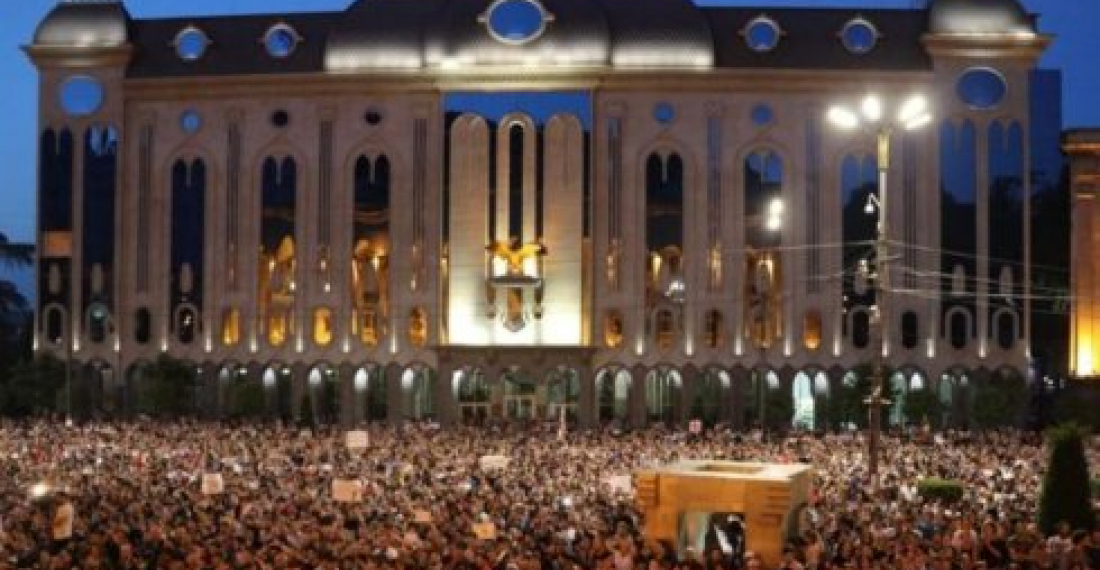The Russian government has continued its attempts to put pressure on Georgia following a diplomatic incident in Tbilisi on Thursday involving a member of the Russian Lower House of parliament, the Duma.
Duma member, Sergei Gavrilov, had to leave Georgia in a hurry after his presence in the Georgian parliament at an event of the Inter-Parliamentary Assembly on Orthodoxy triggered protests which turned into violent demonstrations within hours.
The Russian government is now claiming that Russians in Georgia are not safe. It has told all Russian airlines to stop flying to the country, has ordered a halt to flights by Georgian Airlines to Russia, and has adviced all of its citizens not to visit the country.
Georgian-Russian relations have been difficult, especially in the last three decades. But people to people contacts remain strong. Millions of Georgians or people of Georgian descent live in Russia, and more than one million Russians visit Georgia every year as tourists. Russia's decision to interfere with people to people contacts is yet another attempt of the Kremlin to undermine Georgia and its independent foreign policy. Russia tried this kind of pressure before, quite unsuccessfully. it is highly unlikely it will work on this occasion.
Kremlin supporters on the other hand have defended the Kremlin's decisions. The Chairman of the Russian Federation Council's (upper house of Parliament) Foreign Affairs Committee, Senator Konstantin Kosachev said on Sunday on his facebook page that "Georgia's authorities, who are responsible for the situation in the country, have immediately shifted the blame on Russia, actually without any grounds and in an insulting way. By taking respective restrictive measures, the Russian president could not have acted in another way because the responsibility for what is happening, shifted by Tbilisi on Moscow, forcebly passed to him," he said.
In the meantime, emotions in Tbilisi remain high, with demonstrators maintaining a presence in front of the parliament building. Unlike what happened on Thursday night, protestors have been peaceful.
The international community is watching developments closely, and western governments have appealed for calm. Given the spiral of events on Thursday, the actions of various players is now also under scrutiny, amid suspicions that this was an attempt to distabilise Georgia and create discord in the country.
David Bakradze, a senior Georgian politician, and one of the leaders of the opposition European Georgia Party, has in the meantime raised the issue of Russia's return to full participation in the Parliamentary Assembly of the Council of Europe, which is going to be discussed at a PACE meeting in Strasbourg this week. Bakradze said that it was not acceptable that Russia should be allowed to return to the Council of Europe given its recent actions, as well as it continued occupation of Georgian and Ukrainian territory.
source: commonspace.eu
photo: Protestors outside the Georgian parliament on Friday evening (picture courtesy of BBC, London)






